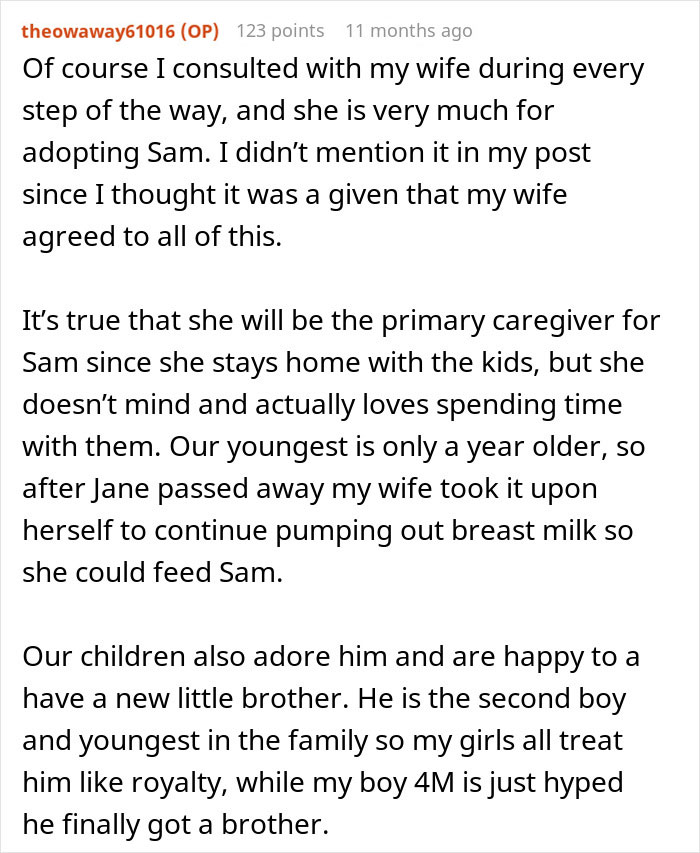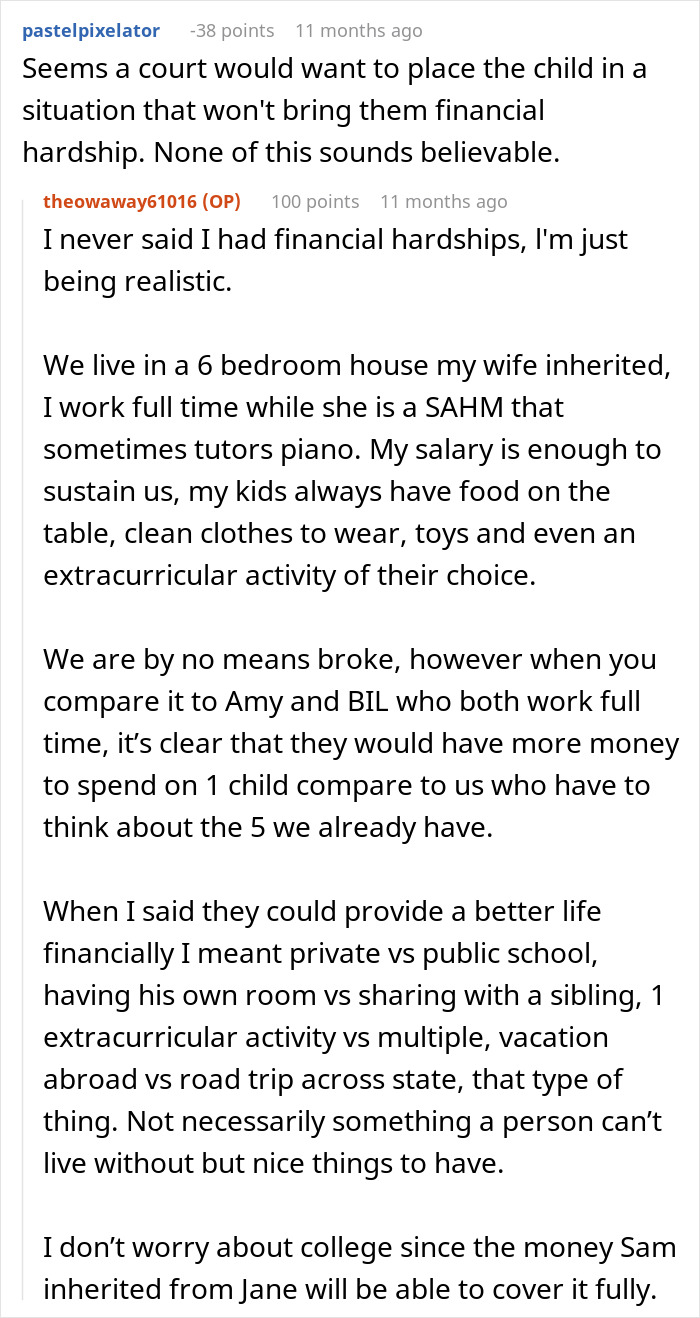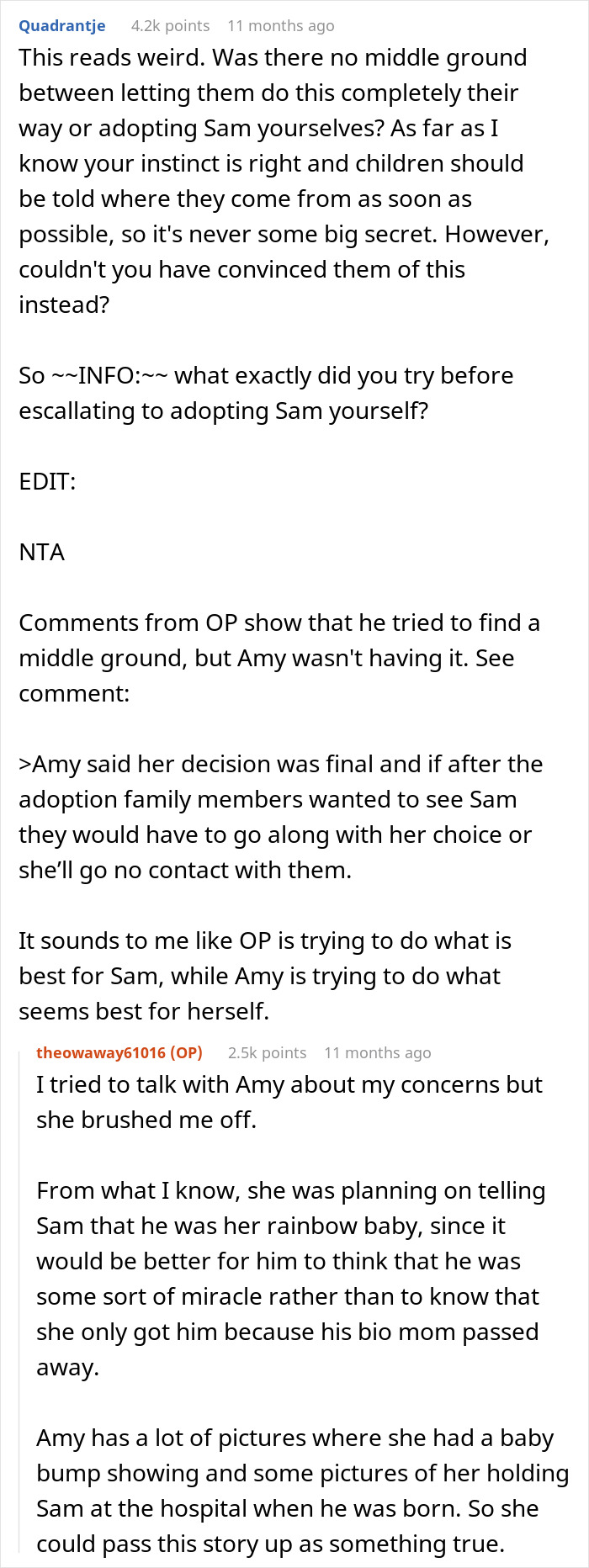Planning for your own death is not something many people like to think about. But it’s super important, especially if you have young children. What will happen to them when you’re gone? Who will take care of them? How do you want them to be raised?
When one woman died suddenly, she left behind a 6-month-old baby. Her sister desperately wanted to adopt the little boy. But she wanted to raise him as her own, never telling him that his biological mother had died. Her brother blocked the adoption and applied to adopt the child himself. It’s caused massive family drama, and the brother is now wondering if he acted in the best interests of the baby.
When this woman’s sister passed away, she didn’t think twice about adopting her orphaned baby
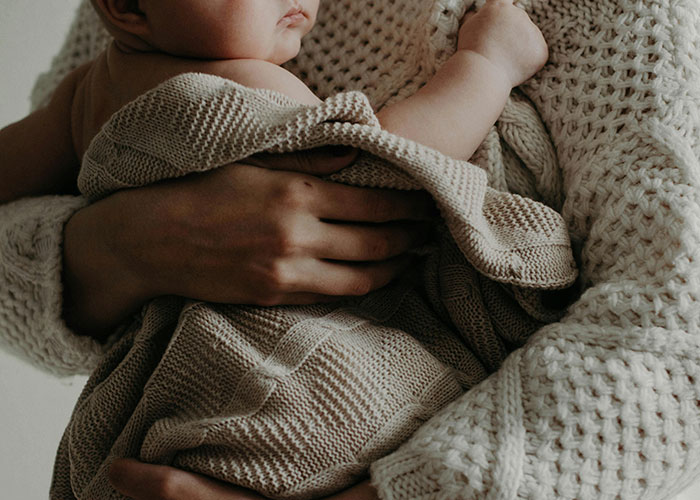
Image credits: Kristina Paukshtite/Pexels (not the actual photo)
But her joy at being a mom was short-lived when her brother contested the adoption
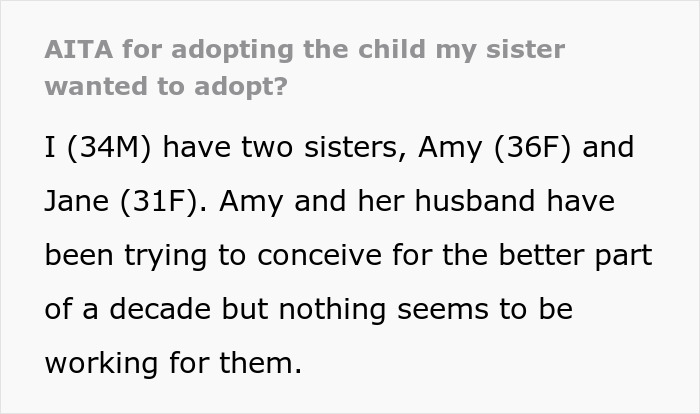
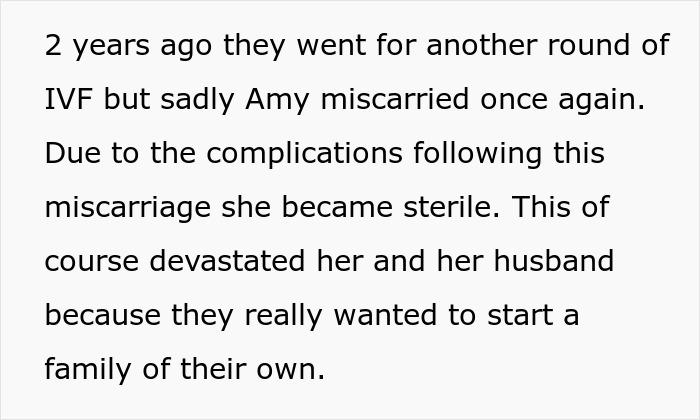
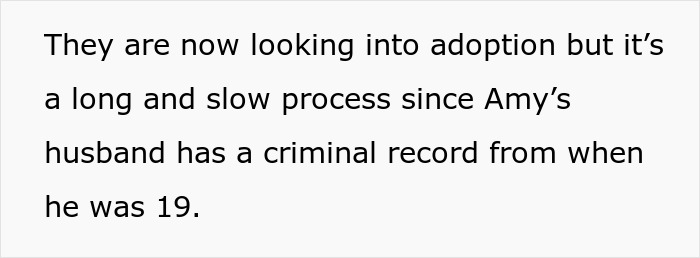
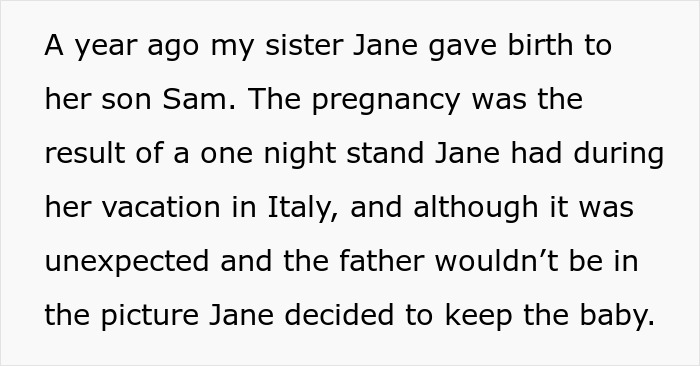
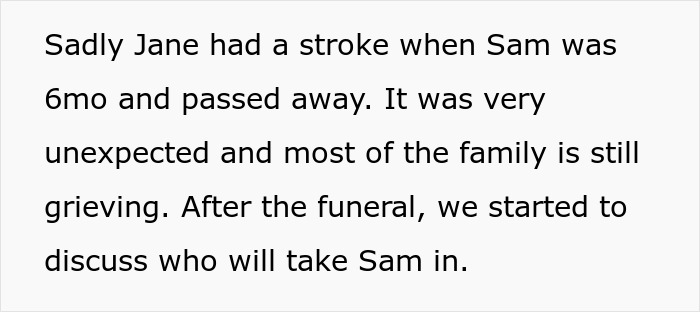

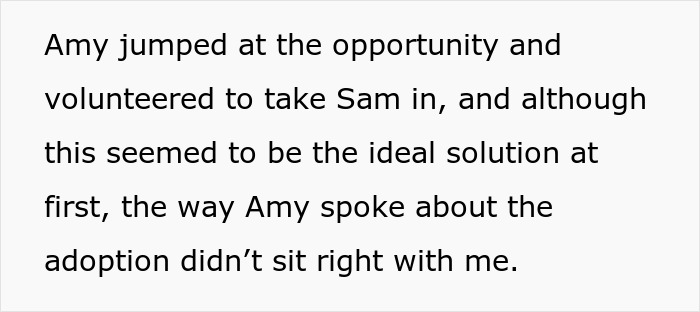
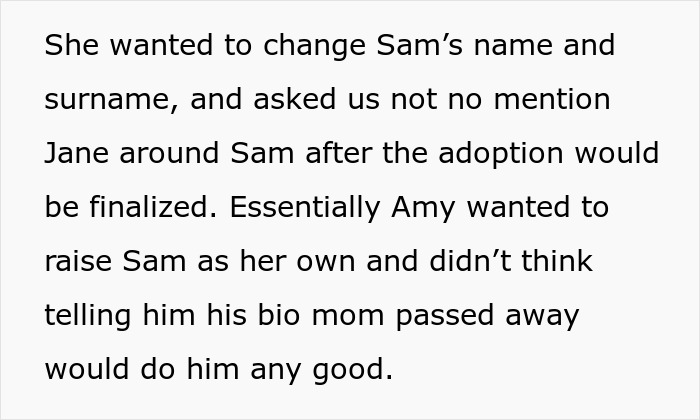
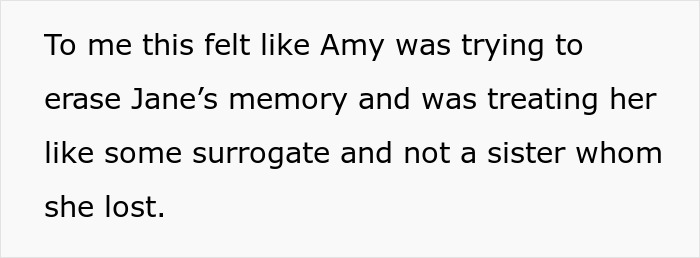
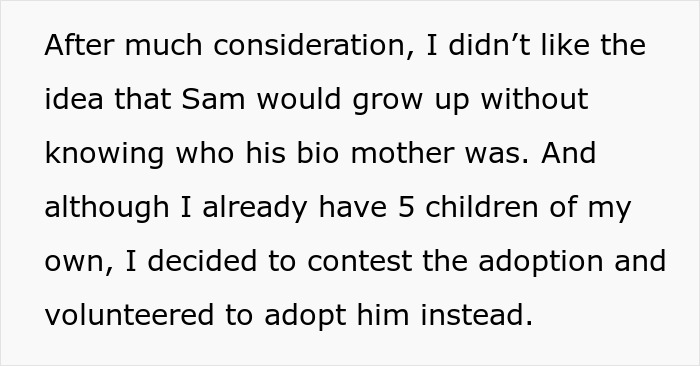
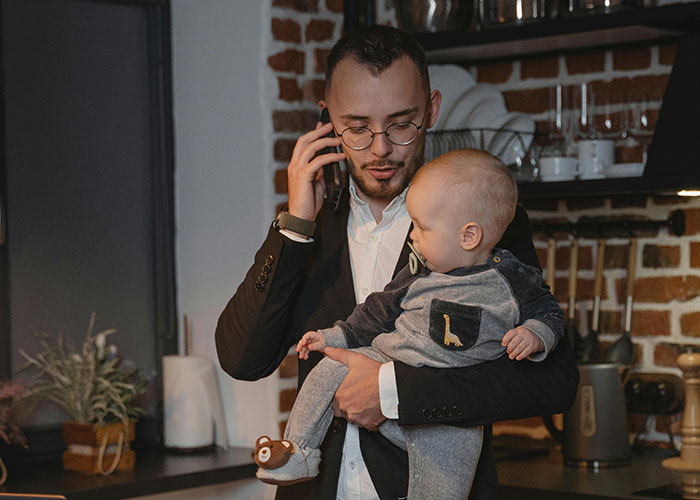
Image credits: Tima Miroshnichenko/Pexels (not the actual photo)

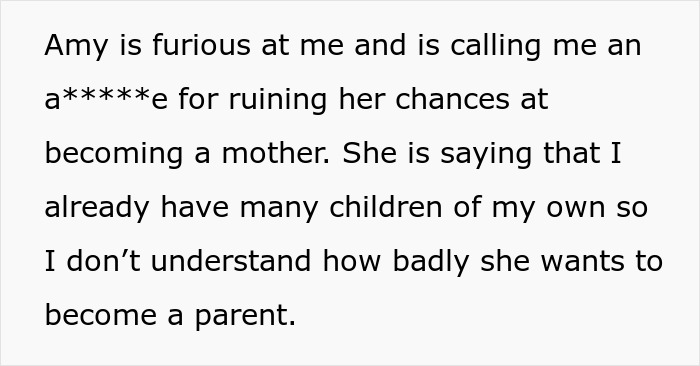
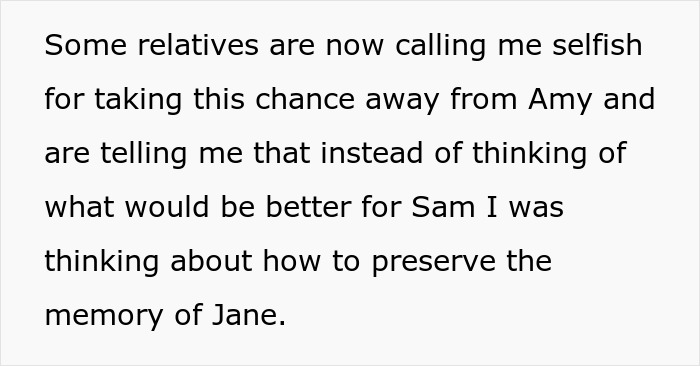

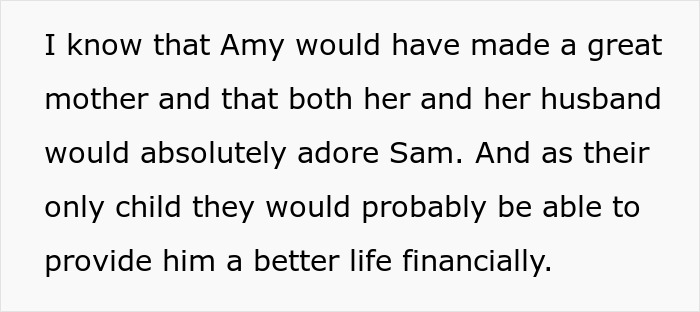
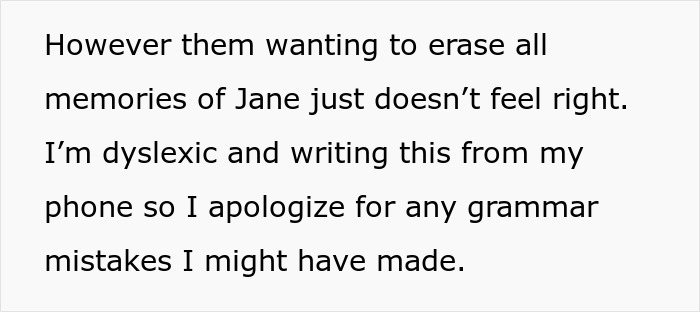
Image credits: theowaway61016
Parents should ensure plans are in place for their children in the event of their own sudden or untimely death
An important part of drafting your will is to nominate a legal guardian who will take care of your minor children if you die. Many times, it will be the other parent. But in some cases, like the man’s sister’s, this isn’t always possible.
If you have nominated a guardian for your child or children, this person will be expected to take on full parental responsibilities. “A guardian is typically a trusted family member or friend who has agreed to take on this responsibility,” notes U.K.-based law firm LBMW.
The firm adds that if both parents died without a guardian being appointed, the children may be taken into care until the court appoints a guardian. “In these cases, the court considers the welfare of the child above all else,” reads the site.
The court will take into account things like the child’s age, emotional ties, and the stability of potential homes before deciding where to place the minor. There’s often a welfare checklist that’s used in order to assess the child’s needs. It goes without saying that this is a decision that’s not taken lightly.
According to The Legacy Lawyers’ site, a judge will review the potential guardian’s relationship with the child. They’ll also try to keep things as consistent as possible and not shake up the child’s routine too much. Ideally, depending on the child’s age, it’s preferred that school or child care routines remain the same, and that the minor still has access to, and gets to see or visit, extended family members.
A judge would also look for evidence of parenting ability when it comes to who takes guardianship. “The legal system works to make sure that the adult who receives custody is able to meet the child’s physical and emotional needs,” reads the legal site. “This includes long-term support for food, shelter, clothing, medical care, education, emotional support, and guidance until the children turn 18 years of age.”
The child’s safety and wellbeing is paramount, so the courts would have to consider the potential guardian’s physical and mental health. They’d look for any past records of violence, criminal activity, or use of substances.
If the child is old enough, the might have a say in who is becomes their guardian “as long as the judge believes the choice makes good sense.”
When you’re drawing up your will and including a guardianship clause in it, make sure you’ve spoken to the person that you want to look after your child or children. And remember, it’s a massive responsibility and they have every right to refuse to take on the role.
People had lots of questions and the man provided more info in the comments
“Sam’s a person, not an opportunity”: many felt the baby went to the right sibling
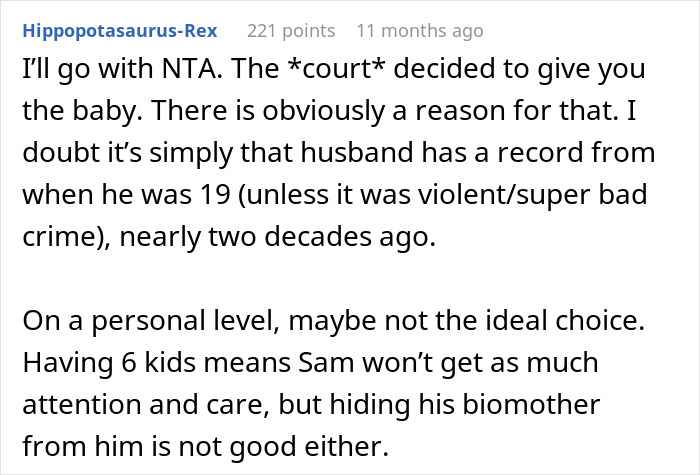

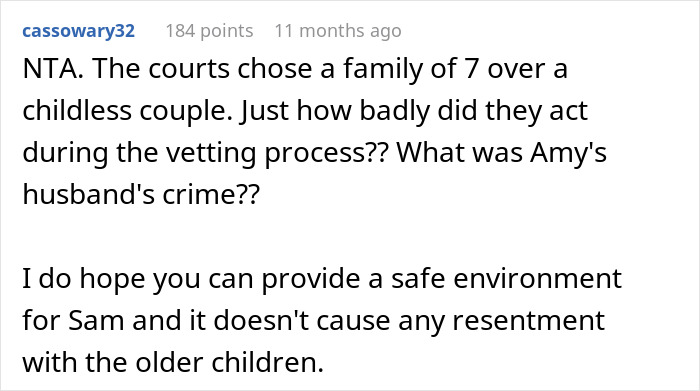
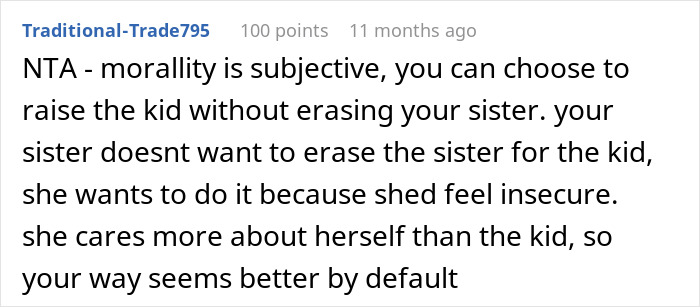


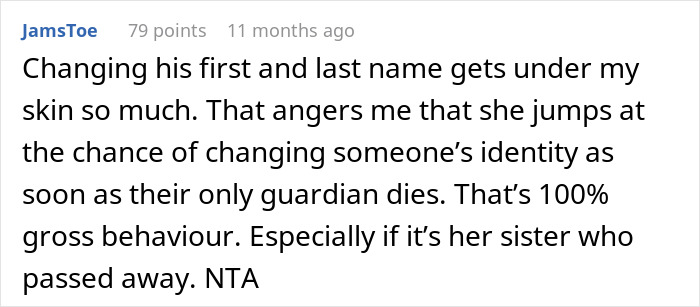

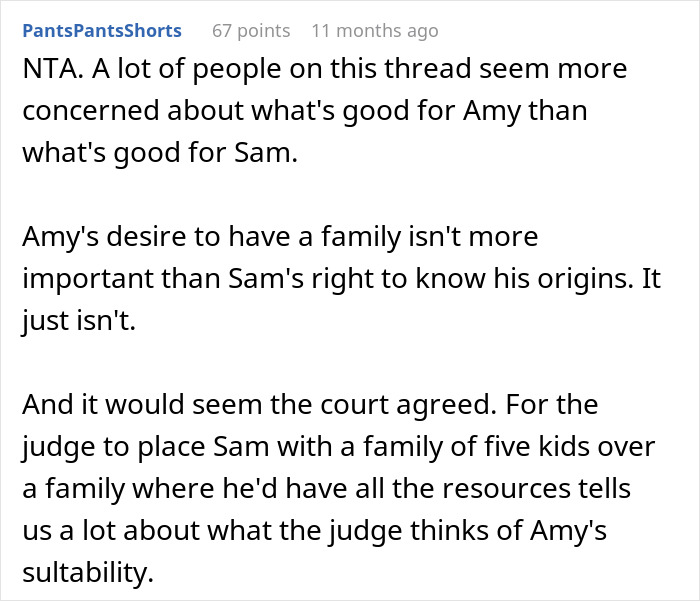
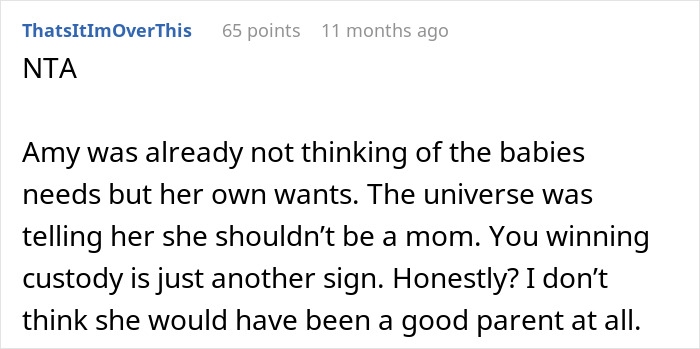
Some netizens felt the brother was selfish and should have allowed his sister to adopt Sam
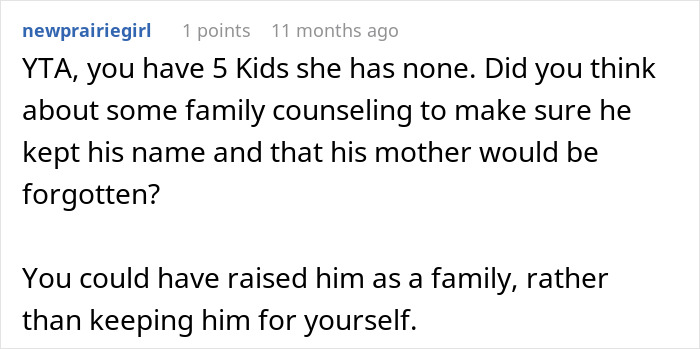
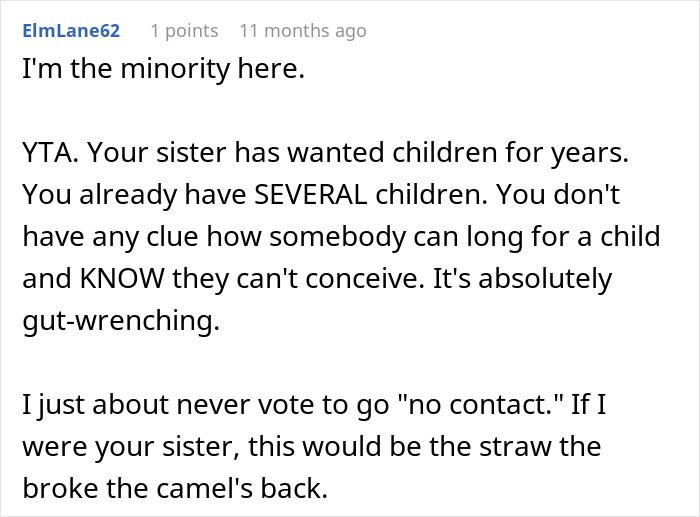

from Bored Panda https://ift.tt/4S93OoX
via IFTTT source site : boredpanda
